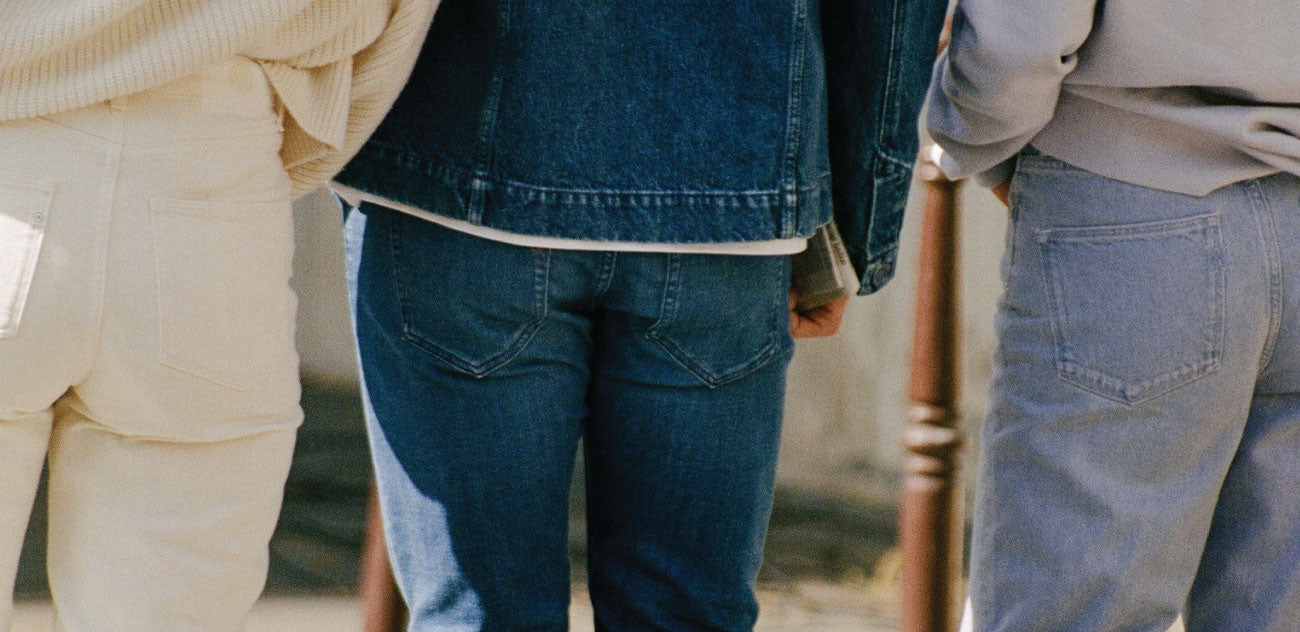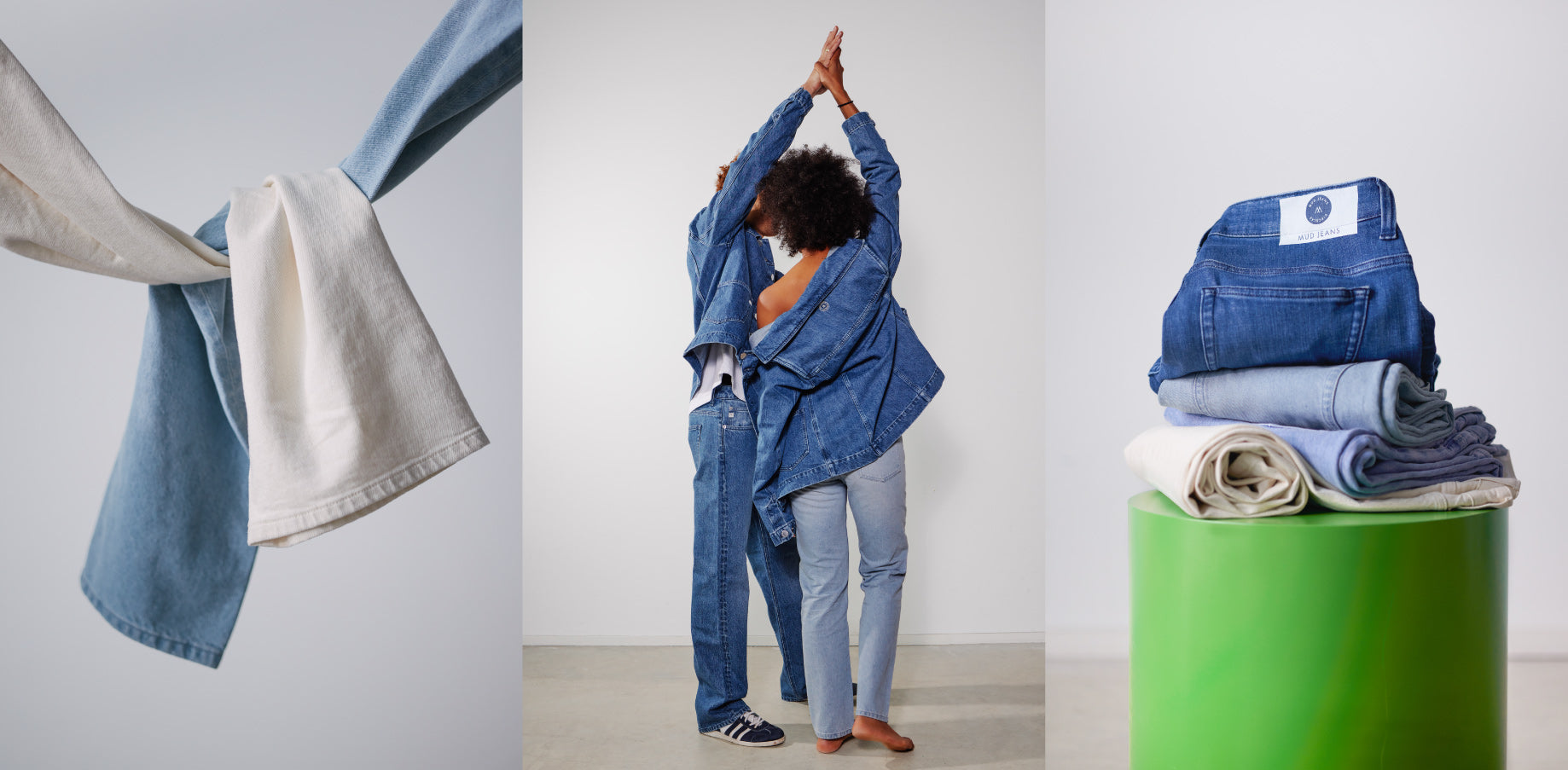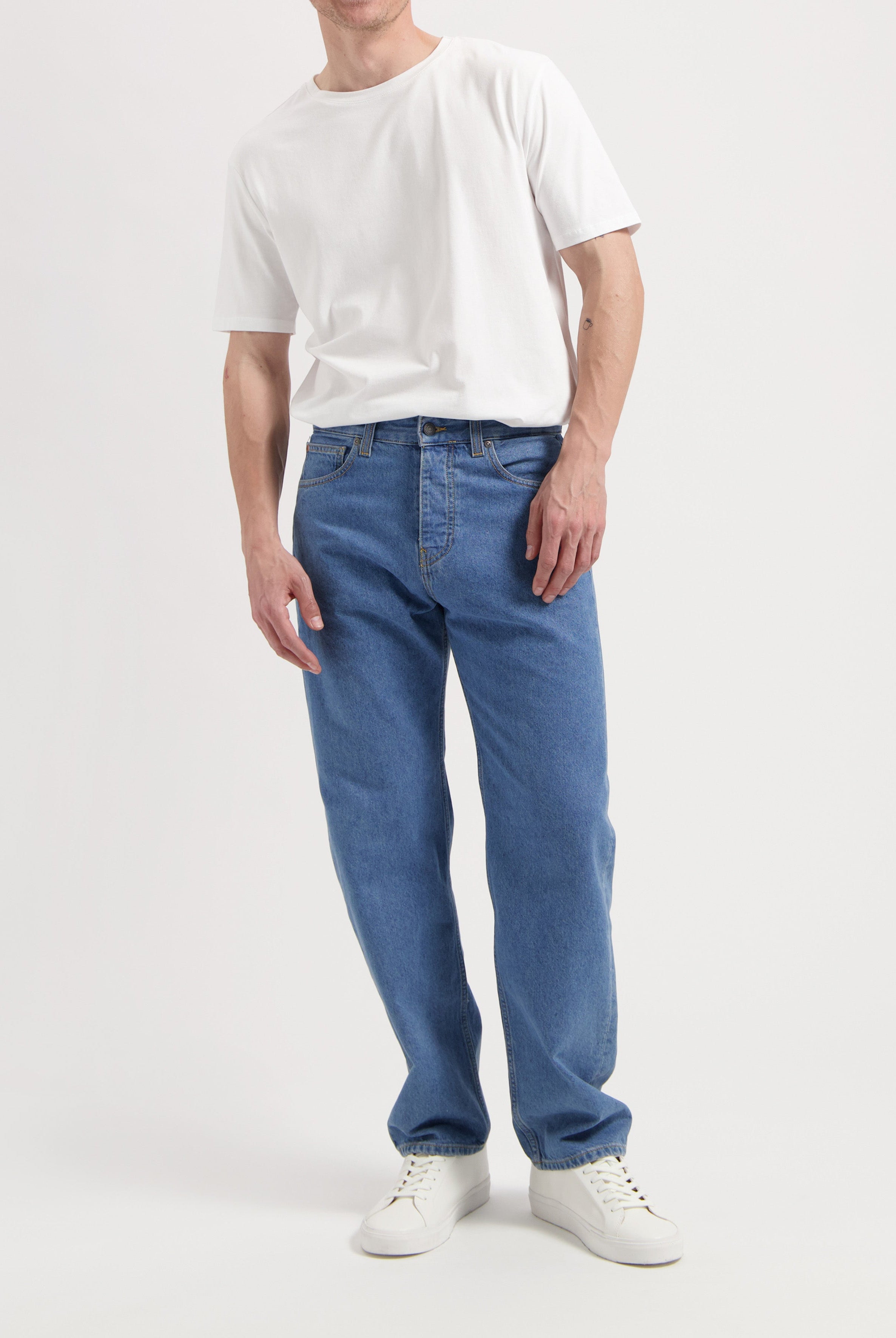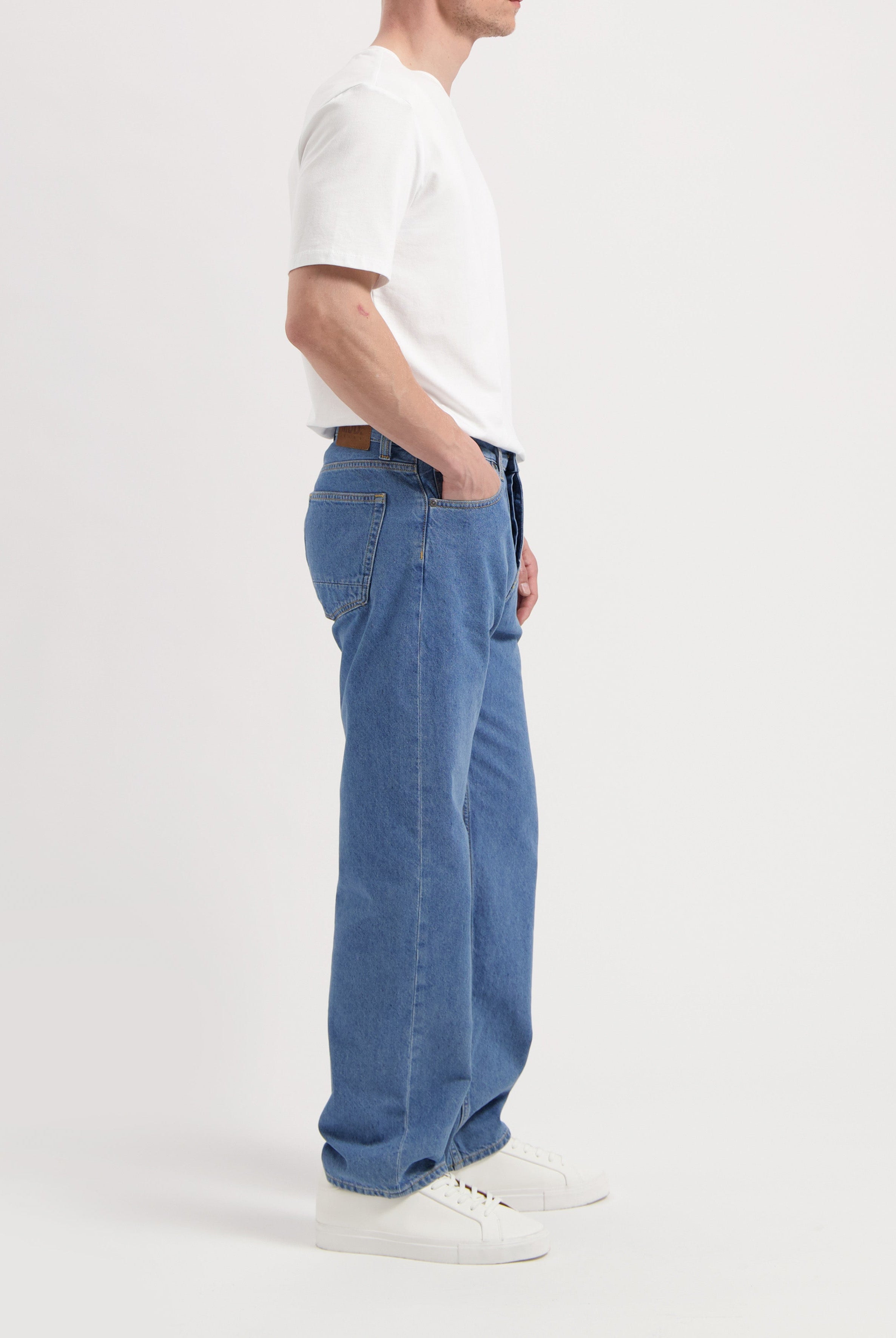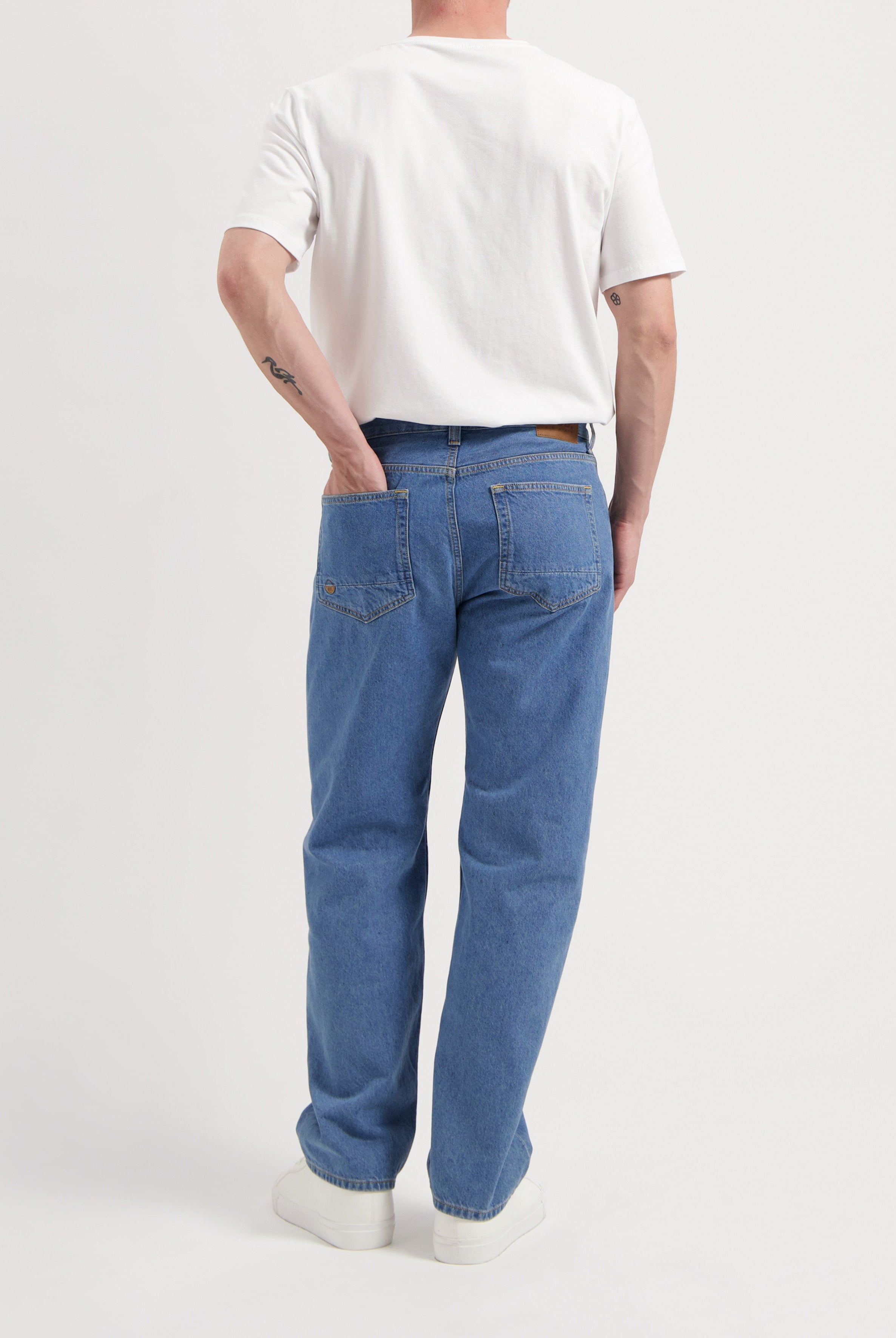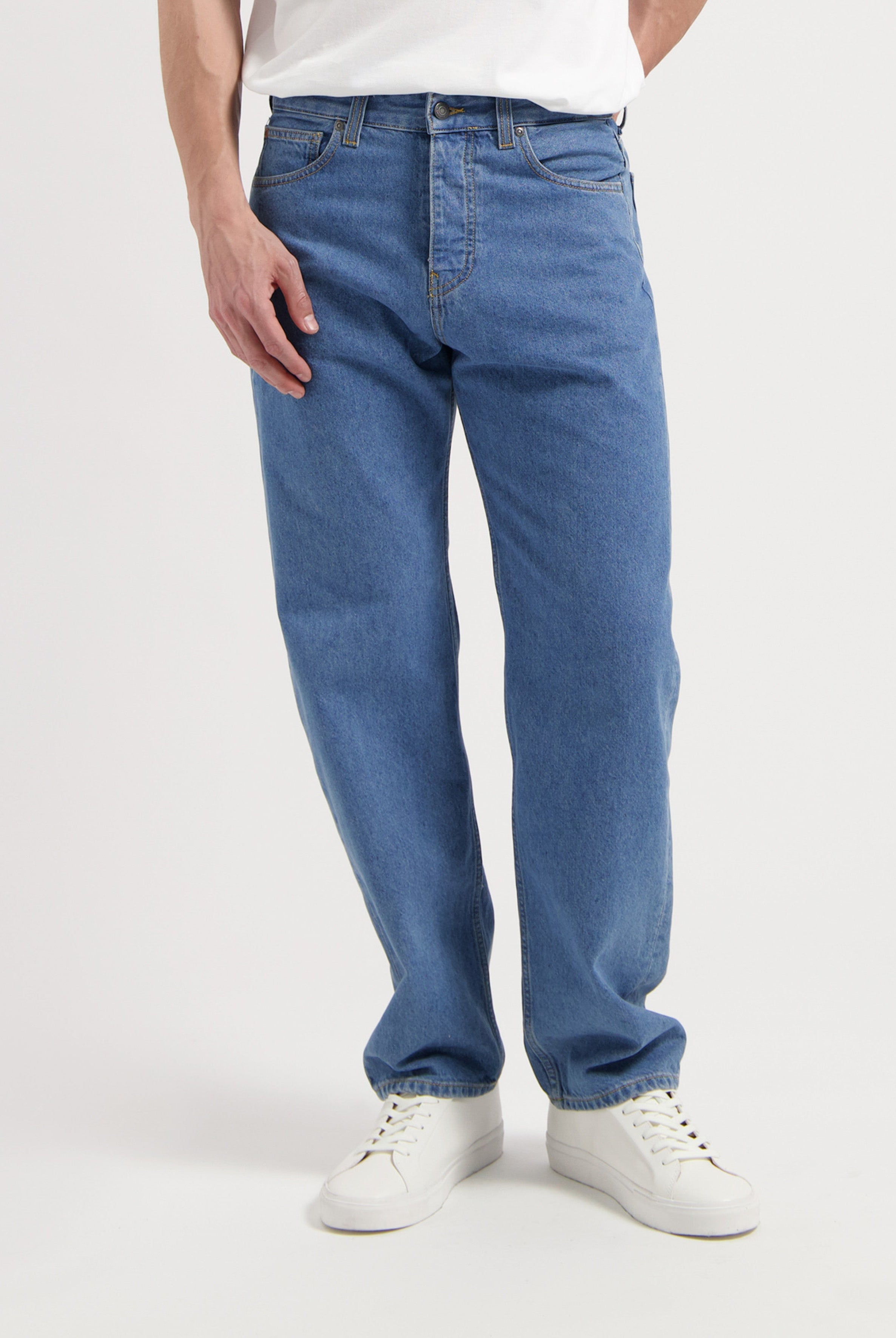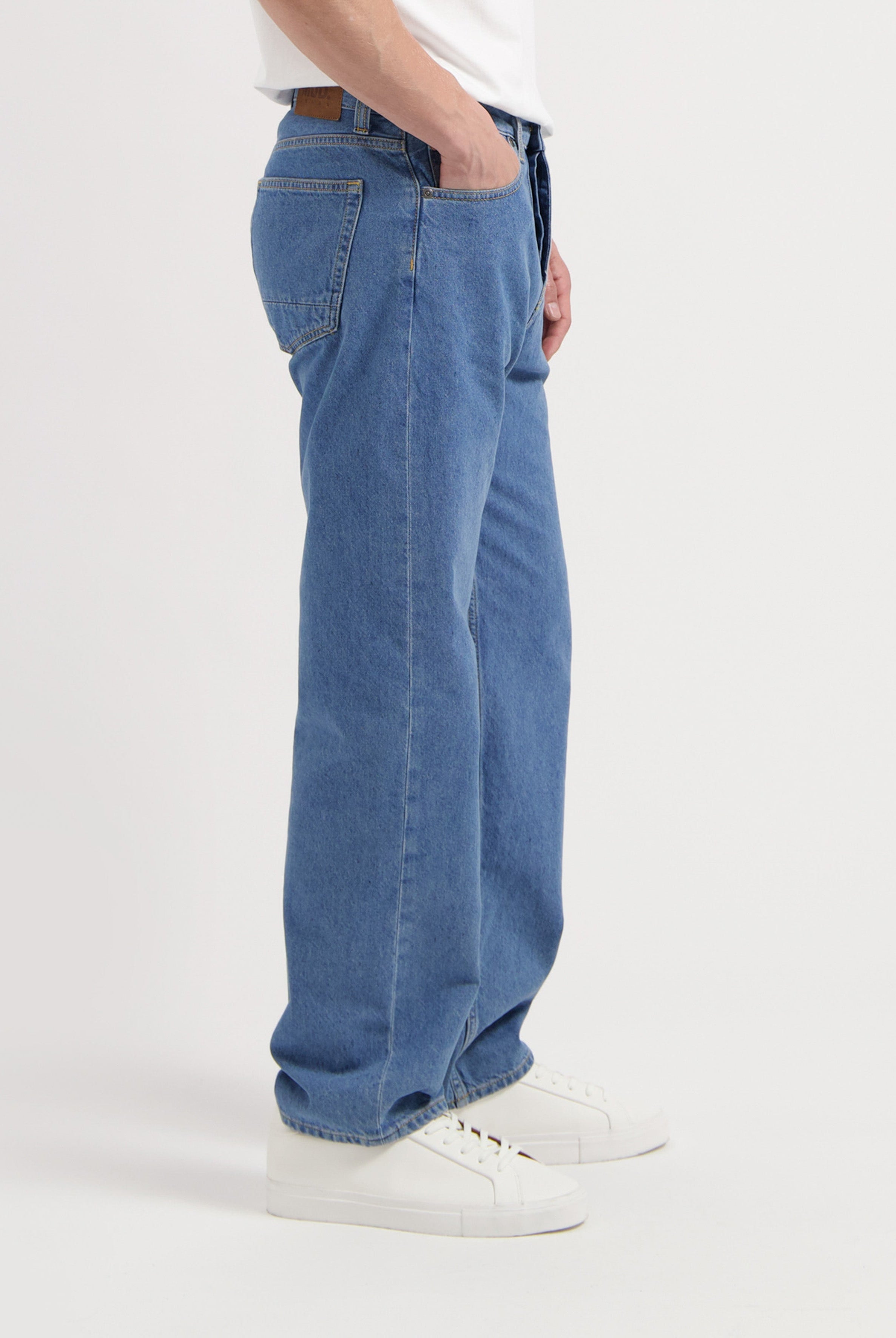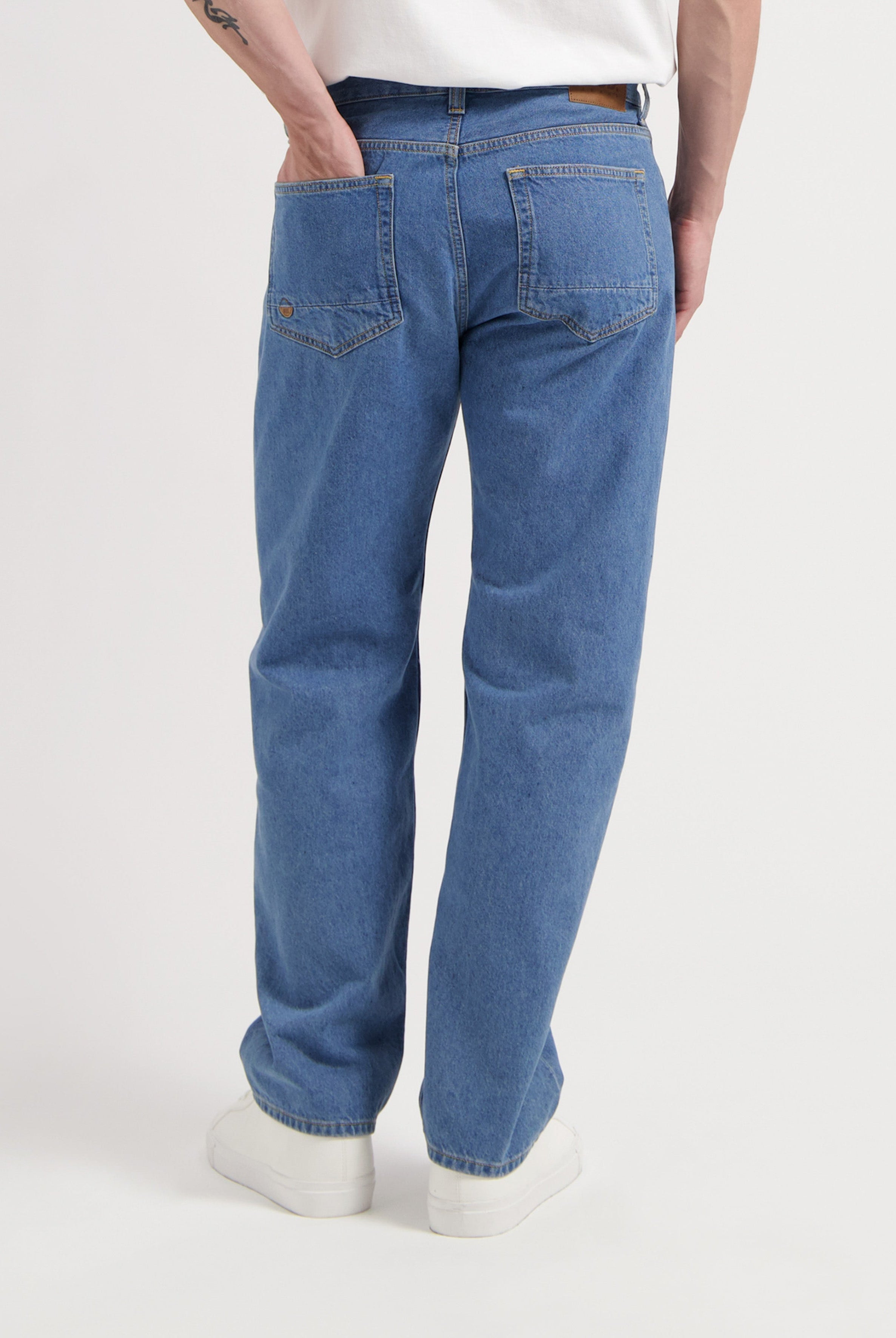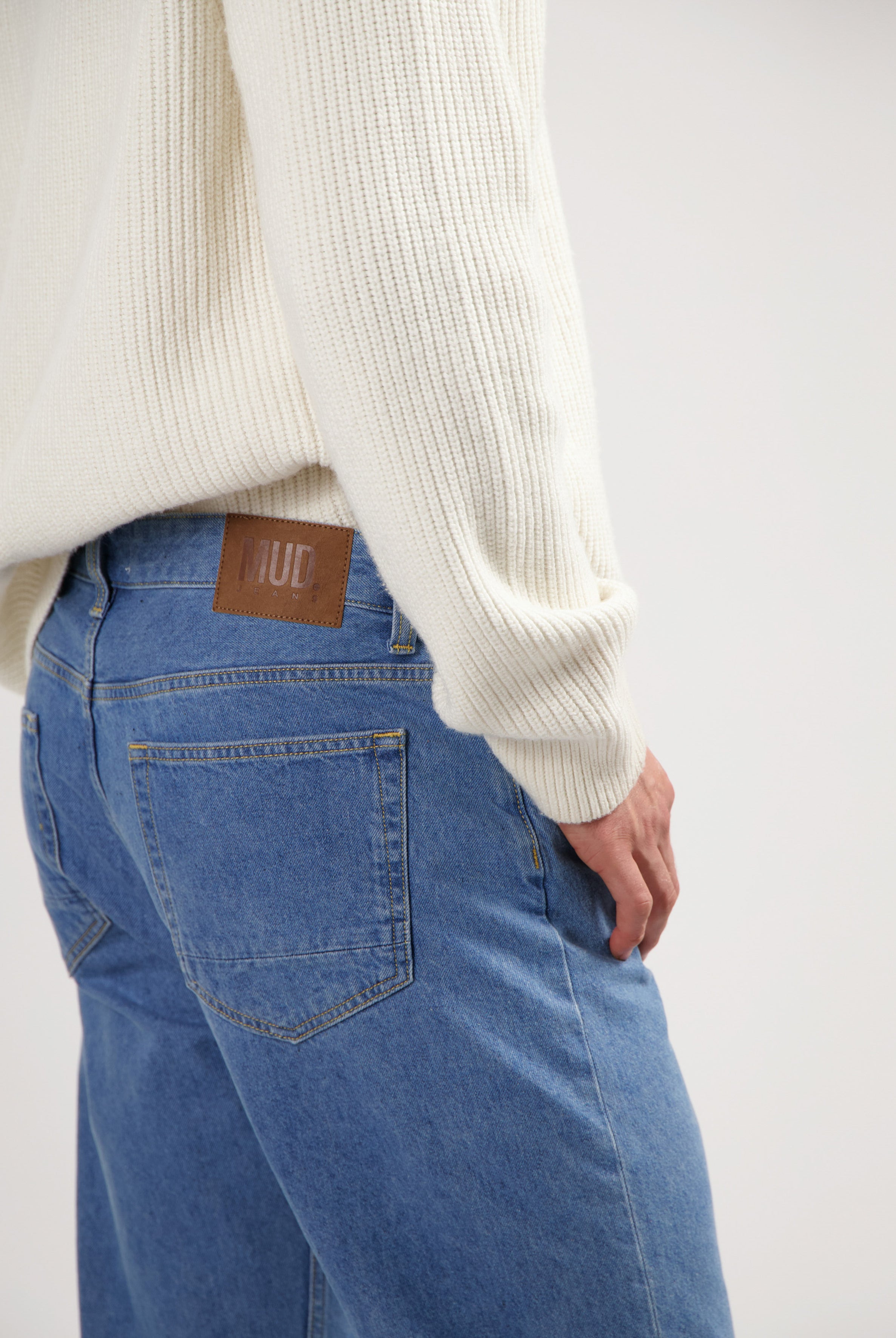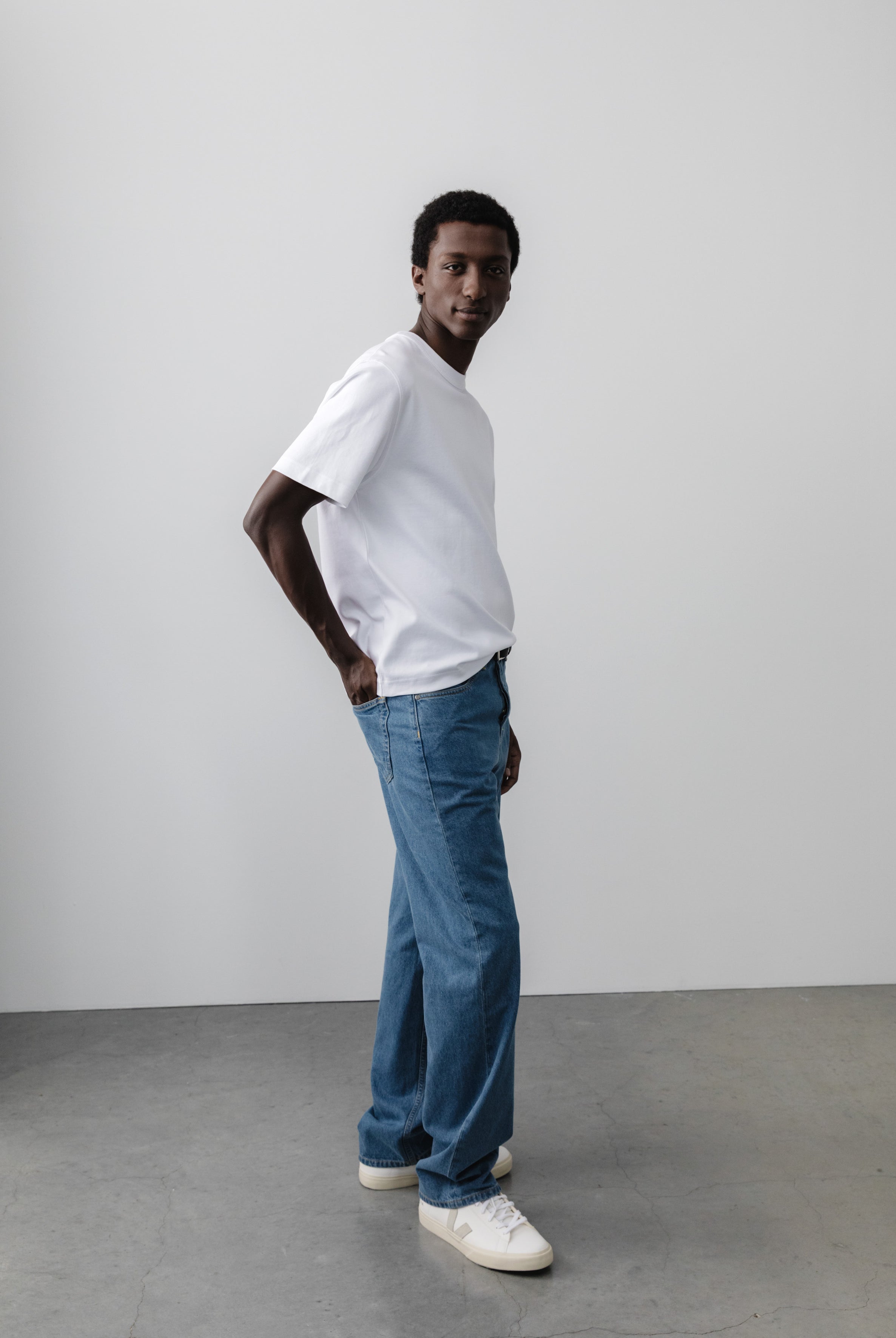In circular design, simplicity is key.
There are two main materials that go into the majority of our fabrics: organic cotton and recycled cotton.
Recycled Cotton
Cotton is a natural fibre, and therefore better for your body. It’s breathable, comfortable and hypoallergenic. Our jeans consist of up to 55% post-consumer recycled cotton, the highest percentage out there. It is our favourite material, as it allows us to lower our use of virgin materials and thereby save resources and protect biodiversity. The longterm aim is to make our jeans from 100% post-consumer recycled cotton.
Organic Cotton
Any virgin cotton we use is certified organic cotton. Organic cotton is grown without pesticides, insecticides, herbicides or whichever -cides are out there. The plants are non-GMO, the ground it’s grown on is toxic free and is given time to recover in between harvests. In short, it’s better for your skin and the planet. Most of our denim consists of 45-75% organic cotton, mostly supplemented with recycled cotton.
Fabric Innovation
33% Post-Consumer Recycled Denim, 67% Saxcell
This fabric is a testament to our commitment to innovation. Saxcell is a material created in collaboration with Saxion University. It is made up by 33% post-consumer recycled cotton and 67% wood pulp, making the total amount of PCRC in the fabric 55%, our highest percentage yet.
25% Post-Consumer Recycled Denim, 21% Pre-Consumer recycled cotton, 25% Refibra Lyocell, 27% Organic Cotton & 2% Recycled Elastane
This fabric blends mechanically and chemically recycled denim to maximize circularity while maintaining durability and longevity. Combined with organic cotton and recycled elastane, it transforms old garments and manufacturing waste into new, high-quality products.
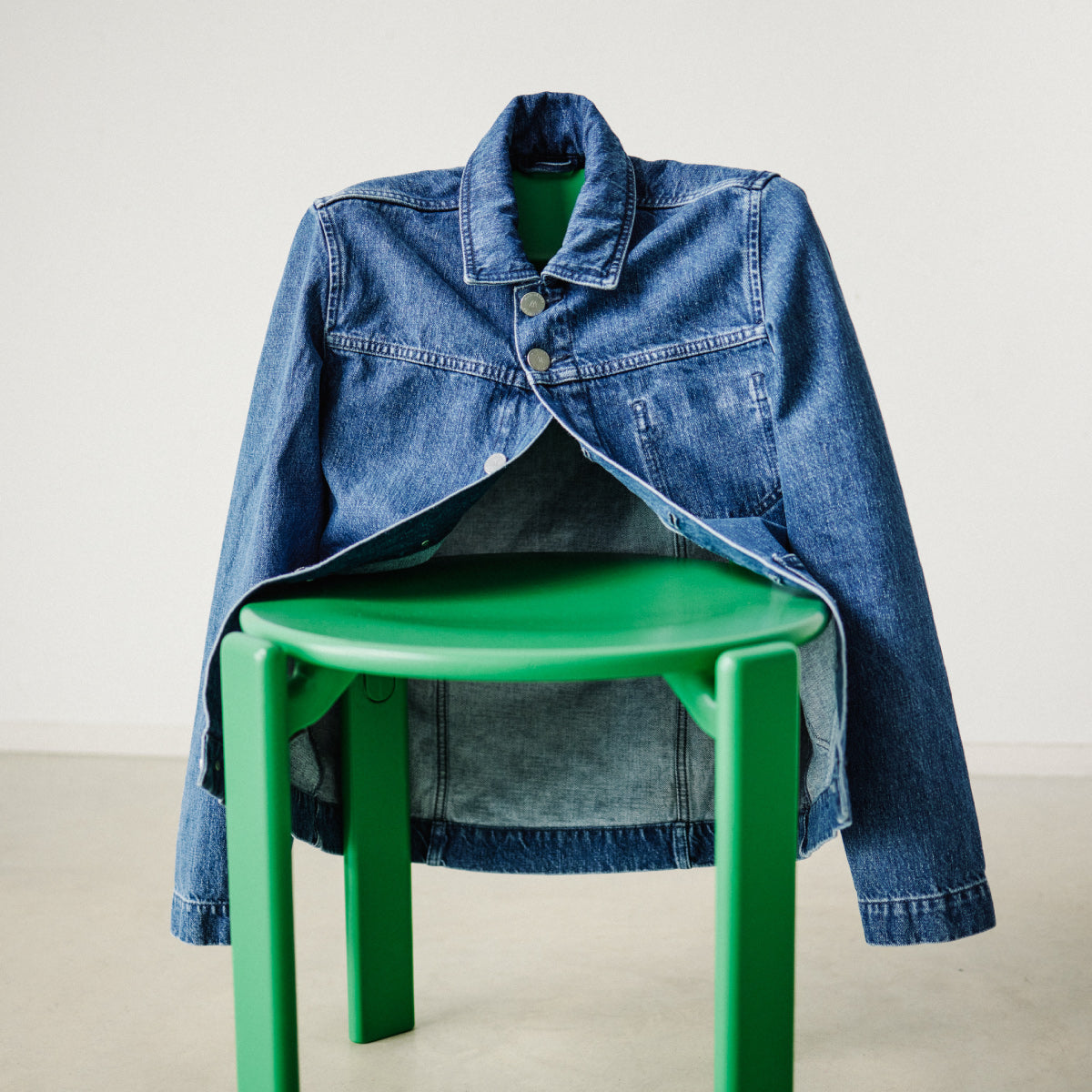
Synthetic Fibres
Natural fibres like cotton are biodegradable and hence will leave no traces when returning to nature. Synthetic fibres like polyester and elastane are meant to last. Just like plastic bottles, they are petroleum based and shed microplastic fibres when being washed.
That’s why we advocate for rigid denim, but everyone needs a little stretch sometimes – we get that. In our stretch jeans we use a maximum of 3% recycled elastane & T400, and we use stitching yarn with a polyester core for extra strength. By retaining synthetic content to a minimum, we keep the jeans recyclable and can ensure their material gets reused again and again instead of ending up in landfill.
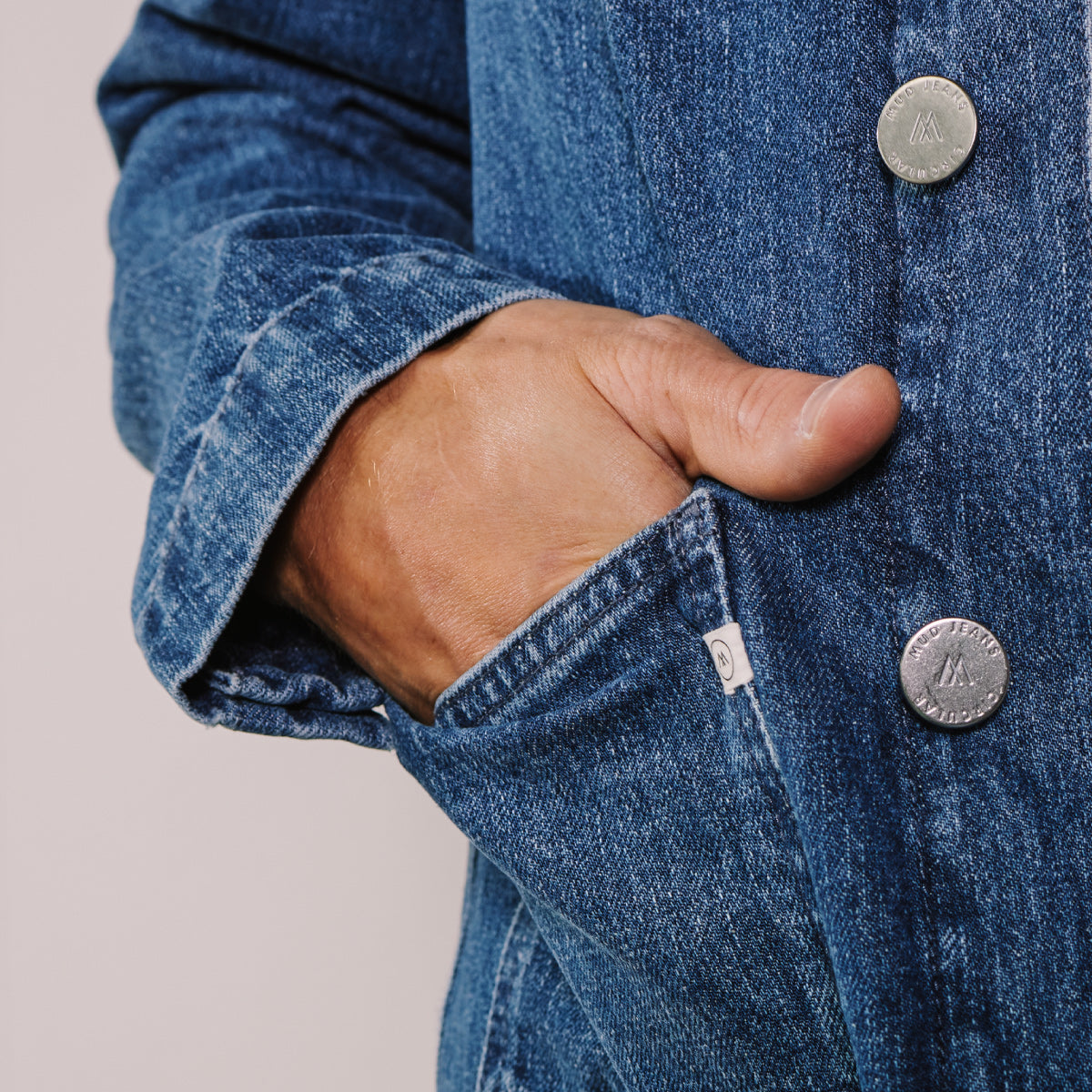
Recyclable Buttons
Unlike most buttons, which are often a mix of metal and plastic and difficult to recycle, our buttons and rivets are crafted entirely from recycled stainless steel—no plastics, no waste. Designed for durability and circularity, they’re ready for their next life once you’re done with them.
Certifications
Global Recycle Standard (GRS)
Our fabrics with recycled content are GRS certified by our fabric suppliers. The GRS (Global Recycle Standard) is a full product standard that sets requirements of recycled content, chain of custody, social and environmental practices and chemical restrictions. By being GRS certified by our fabric suppliers, we ensure that the recycled components of our jeans are safe for the wearer and the planet.
Our supplier Yousstex is also GRS certified, allowing us to extend our certification beyond just the fabric level to the entire garment. This means we can now verify recycled content throughout the full product, bringing even greater transparency and traceability to our process.
Organic Content Standard (OCS)
Any non-recycled cotton we use is certified organic cotton, verified through the OCS certification of our fabrics' suppliers. This cotton is guaranteed to come from sources where no toxic chemicals, pesticides, or genetically modified seeds are used.
Our manufacturer Yousstex is also OCS certified, allowing us to extend our certification beyond just the fabric level to the entire garment. This means we can now verify organic content throughout the full product, bringing even greater transparency and traceability to our process.
Forest Stewardship Council (FSC)
Our paper labels are FCS certified, which ensures us that the forests used to make the paper we used are managed in a way to preserve biodiversity as well as benefit the lives of local people and workers.
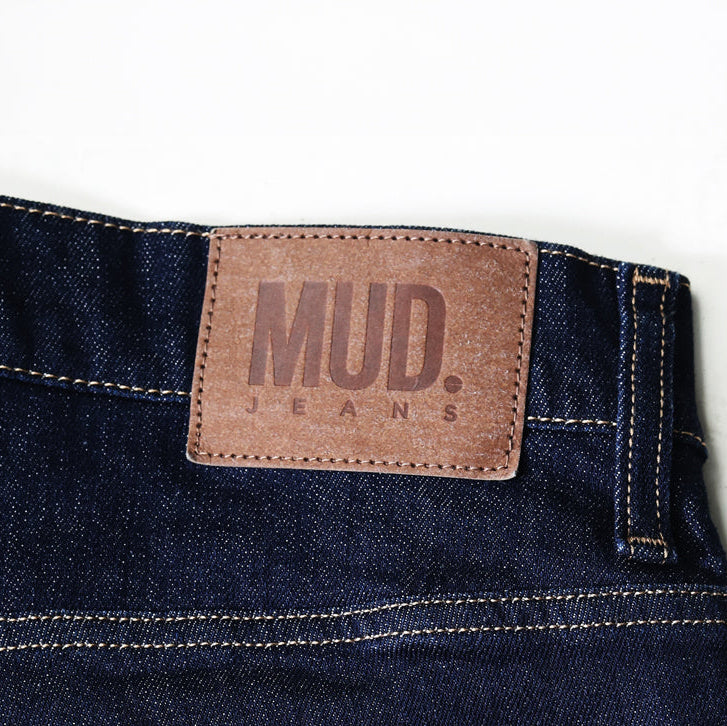
Jacron Labels
To avoid the cruelty and emissions related to leather, we replaced the usual leather patch on jeans with a vegan natural alternative. Like cotton, Jacron is mainly cellulose based, keeping the composition of our jeans natural, while maintaining that classic denim look, without harming any animals
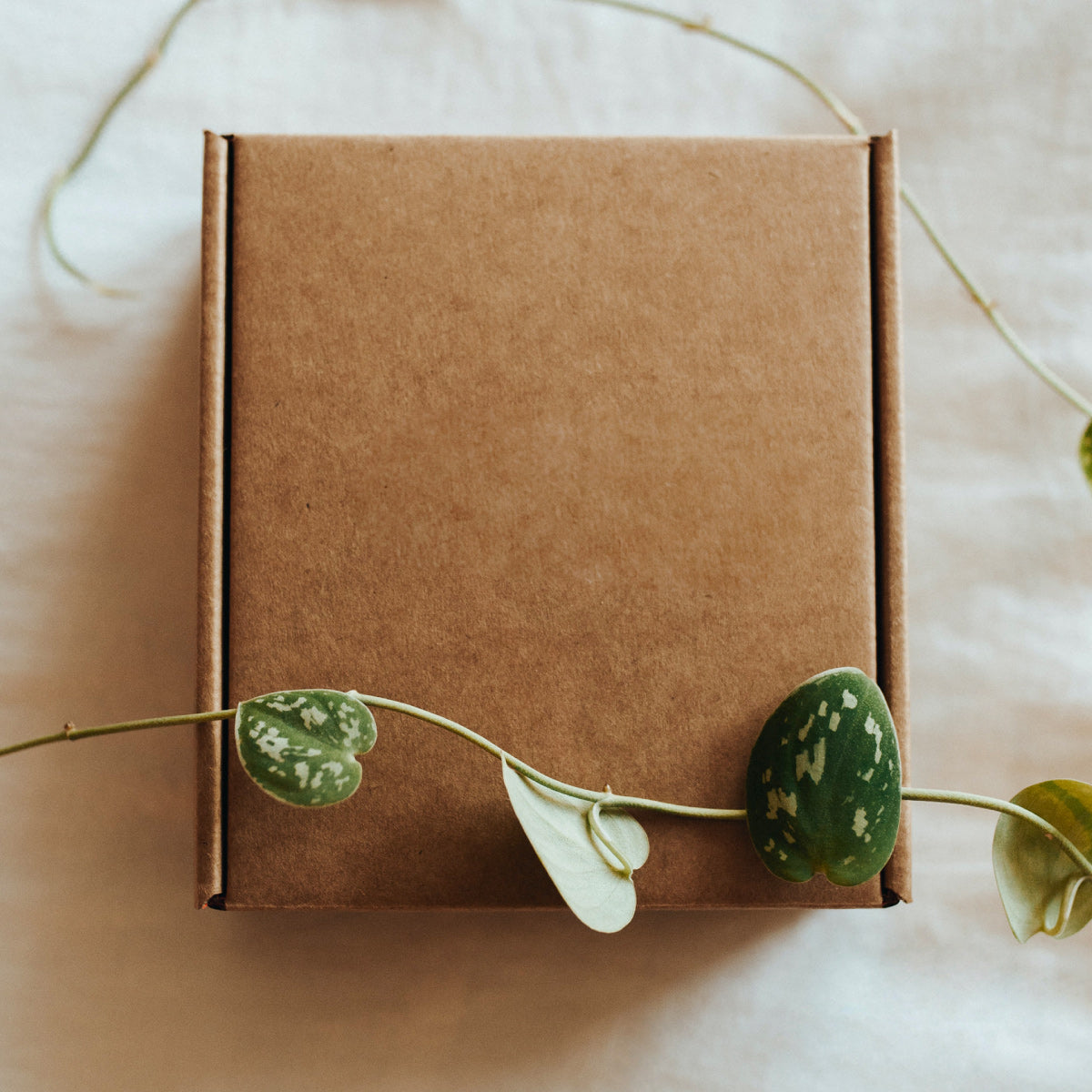
Packaging
No plastics or unnecessary materials are included in our packaging. Our packaging is made out of cardboard, of which 72% is from recycled cardboard. Due to the advanced technology used by our logistics partner, each box is made to measurement. This way we only use what we need and avoid waste. Cardboard is organic, ethical, easily recyclable and 80% biodegradable.









